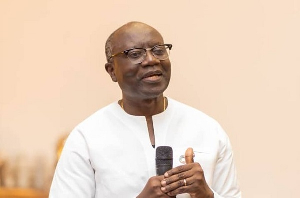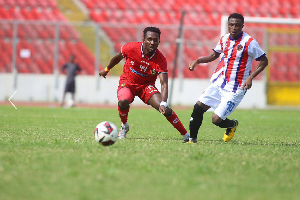The Ministry of Energy has shortlisted three bids for Ghana’s petroleum hub project, with one of the investors pledging up to US$15 billion to fund the storage component of the ambitious programme.
The bids have since been forwarded to the Attorney-General’s Department for review and advice, with a response expected by year-end for the project to take off in January.
“Expression of interest was massive, but three were chosen and forwarded to the AG for advice,” technical advisor to the project, Dr. Eric Yeboah, told Business24.
Analysts say the US$60 billion project will be the biggest private investment in Africa.
The 20,000-acre petroleum hub will have four refineries with a cummulative capacity of 600,000 barrels per day (bpd), two oil jetties, four million-capacity tank farms, and two petrochemical plants.
The hub, which will be located at Bonyere in the Western region, targets very large and ultra-large crude carriers (VLCCs and ULCCs) traversing the West African coast, a popular route for European vessels.
The project is expected to accelerate the growth of Ghana’s downstream petroleum sector and make the country a major player in Africa’s oil and gas industry.
Government is targeting US$1.56bn in export tax revenue through the project, which is projected to create about 780,000 jobs and increase GDP by more than half by 2030.
“We expect to serve the VLCCs and ULCCs, and also explore the market opportunities in the sub-region,” Dr. Yeboah said after a stakeholder engagement with residents of Bonyere over the weekend.
Phase one scheduled for January
An estimated US$12bn is needed to fund the first phase of the three-phase project. The first phase comprises land valuation and compensation, followed by development of petrochemical plants, a refinery and tank farms.
Completion of phase one will make available a projected crude refinery capacity of 350,000 bpd and storage capacity of one million, with ancillary facilities and services scheduled for the second and third stages respectively.
“Surveyors have already started work, and we are in talks with the communities on compensations and settlements,” Dr. Yeboah added.
Displacement and compensation
Although the project had been designed to ensure minimal displacement, some communities and farmlands will be affected.
However, residents are upbeat about the project, banking their hopes for youth employment and infrastructural development on the creation of the hub.
“The project will help Jomoro District, and our kids will get jobs too,” Samuel Cudjoe, a resident of Bonyere, told Business24.
The Energy Ministry has asked for 20 competent youth from each community within the enclave for vocational services training to position them for employment when the project takes off next year.
“The communities will engage us through their consultants on land valuations and appropriate compensations to ensure they are not shortchanged,” the project’s technical advisor said.
Business News of Monday, 30 November 2020
Source: thebusiness24online.net

















